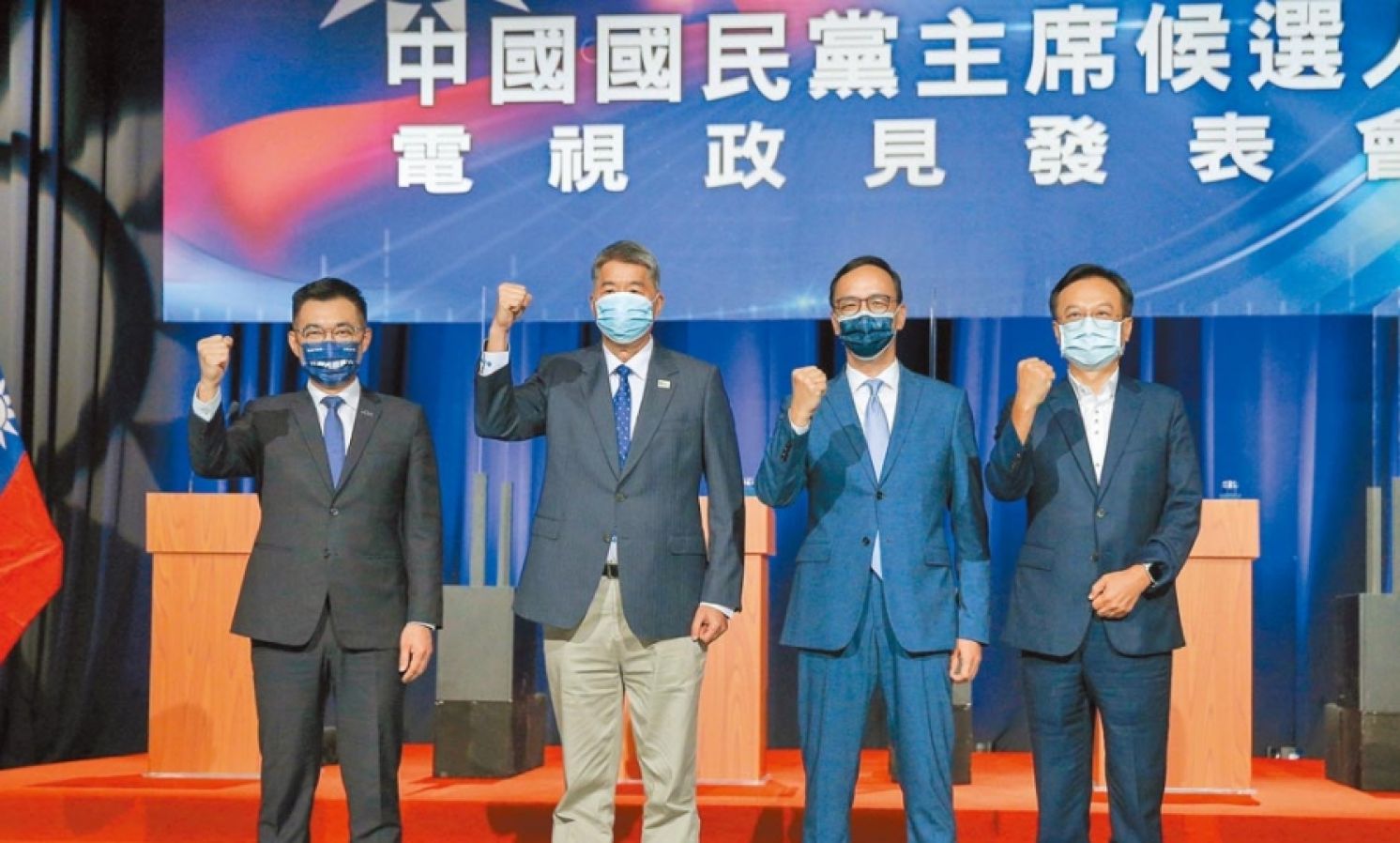
Candidates for KMT Chairman Emphasize Cross-Strait Relations
China Times, September 5, 2021
The only televised debate for the Kuomintang (KMT) chairpersonship election was held on September 4. Part of the debate focused on how to resist the pressure of being discredited as communist fellow and to restart cross-strait exchanges. Eric Chu, former chairman and former New Taipei mayor, stated that in a bid to gradually build up goodwill, he would promote cross-strait exchanges of social forces, depoliticize bilateral cooperation, and set up a KMT service office in mainland China. Incumbent Chairman Johnny Chiang said that regarding the future development of cross-strait relations, whether it be unification with mainland China, Taiwan independence, or some other option, there is room for further imagination, but the prerequisite is to deepen mutual trust so that it is possible to address political issues.
All four candidates vying for the position of KMT chairman affirm the "1992 Consensus" under the former administration of President Ma Ying-jeou. When asked if each candidate had the courage to resist the pressure of being discredited as Communist fellow, restart cross-strait exchanges, resume the KMT-Communist Party forum, or even to head a team to pay an call on mainland Chinse leaders, Chu replied the reality is that as the opposition party, the KMT’s current objective is to promote cross-strait peace and to restore the channels of exchanges. In addition, the spirit of seeking common ground while “shelving” controversies of the 1992 Consensus should morph into “respecting differences” in the future.
Chu added that the KMT would promote the exchange of social forces across the Taiwan Strait and phase out political factors. It would also actively promote Taiwan’s participation in international sports events held on the mainland China next year. At the same time, he will also set up a KMT service office there to gradually build up goodwill so that the basis could be formed for KMT’s resumption of political power in Taiwan.
Chiang pointed out that one of the missions of cross-strait relations is to help the people solve problems. Therefore, he proposed a people-oriented cross-strait relationship. Under the 1992 Consensus, which refers to “one China, with respective interpretations,” the two sides of the Taiwan Strait put aside their disputes and seek common ground while reserving differences. Following it, the KMT must take action to break the ice. Visiting the mainland will be one of the approaches. However, to increase the mutual trust between the two sides of the strait is really a precondition.
Chiang said that in the future development of cross-strait relations, whether it is reunification with mainland China, Taiwan independence, or other, has room for further imagination. The most important thing is to ensure peace and security across the Taiwan Strait. Both sides should not fall into war, instead they can compete each other without resorting to war. Moreover, they can engage in dialogue rather than war. The two sides of the Taiwan Strait have deep blood and cultural relationship. Both sides should sit down and talk things over for reaching consensus.
Cho Po-yuan, former Changhua county executive, propped up Terry Gou, founder of Foxconn, to run for the next leader of Taiwan in hopes of garnering support from the KMT members. If he is elected KMT chairman, Cho promised to invite Chinese President Xi Jinping to visit Taiwan for peaceful purpose. Chang Ya-chung, principal of the Sun Yat-sen Academy, emphasized that if he is elected, he would definitely bring a peace proposal with him to Beijing for talks as long as the KMT became the ruling party in 2024.
From: https://www.chinatimes.com/newspapers/20210905000304-260118?chdtv